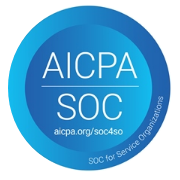Types of Continuing Education
There are several types of continuing education programs, each with its unique characteristics and objectives. Some of the most common types include:
- Professional Development – These programs are designed to help professionals acquire new skills and knowledge to improve their job performance and advance their careers. They may be offered in-person or online and include workshops, seminars, and classes.
- Recertification – These programs are typically required for professionals in specific fields to maintain their licenses or certifications. They often involve a combination of classroom instruction, online learning, and self-study.
- Skill-Based Training – These programs are designed to help individuals acquire specific skills, such as computer programming or project management. They can be delivered in various formats, including online classes and boot camps.
- Personal Enrichment – These programs are not career-focused and are intended to help individuals pursue their interests and passions. They may include photography, cooking, or art classes, for example.
- Professional Licensing – These programs are designed to prepare individuals for professional licensing exams, such as the bar exam for lawyers or the CPA exam for accountants.
- Customized or Corporate training – These programs are tailored to an organization’s specific needs and can be delivered on-site or online. They are typically focused on improving employee skills and performance in a specific area.
Overall, the choice of continuing education program will depend on an individual’s personal and professional goals and the requirements of their field.
LT & VILT For Continuing Education
Instructor-led training (ILT) is a continuing education program in which a qualified instructor leads a group of students in a classroom or other physical setting. The instructor provides instruction, guidance, and feedback to the students and may use various teaching methods such as lectures, discussions, and hands-on activities.
Virtual instructor-led training (VILT) is similar to ILT but is delivered online via video conferencing software. In a VILT program, the instructor and students interact in real-time but in different locations. The instructor uses the same teaching methods as in an ILT program and may use virtual tools such as interactive whiteboards and breakout rooms to enhance the learning experience.
Both ILT and VILT can be effective methods of continuing education. They both provide opportunities for students to interact with the instructor and other students, which can benefit learning. However, ILT programs are often considered more traditional and may be more effective for certain learners. VILT programs are a convenient option for those who cannot attend in-person instruction. In addition, they offer flexibility for professionals with busy schedules and those who live far from the training center.
Both types of training can be very effective in continuing education, as they allow students to learn from qualified instructors and interact with other students. In addition, they offer flexibility for busy professionals and can be tailored to meet the specific needs of a particular field or industry.
ILT & VILT On Paradiso LMS
Paradiso LMS is a Learning Management System (LMS) that can provide both Instructor Led Training (ILT), and Virtual Instructor Led Training (VILT). It offers a platform for delivering and managing different types of e-learning content. Paradiso LMS can facilitate ILT by allowing instructors to create and manage course schedules, track attendance, and provide assignments and assessments. It can also provide a platform for virtual classroom sessions, where students can interact with the instructor and other students in real-time through video conferencing and other collaboration tools.
Paradiso LMS can host and deliver online courses, webinars, and other self-paced learning resources for VILT. It can also provide tools for tracking student progress, providing feedback and assessments, and facilitating student-to-student and student-to-instructor interactions. Furthermore, it can be used to manage both ILT and VILT programs, allowing you to create a blended learning experience for your students.
Additionally, the Paradiso LMS can provide features such as automated enrolment and email notifications, mobile access, integration with other systems, and analytics to track the success of your training program. This allows administrators and instructors to easily manage and track students’ progress and make data-driven decisions about their training programs.













